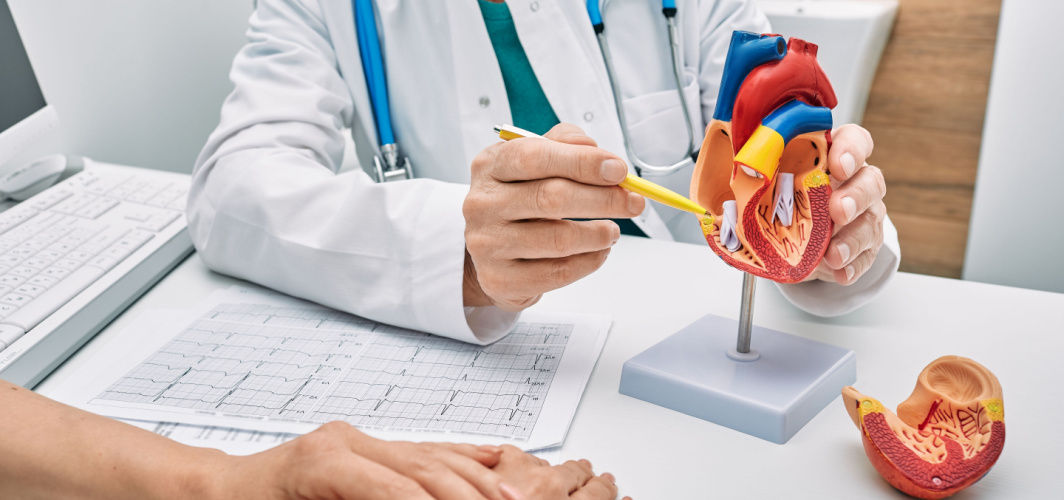Heart Conditions
7 Signs You Need To Visit A Cardiologist
3 min read
By Apollo 24|7, Published on - 26 December 2022, Updated on - 04 February 2023
Share this article
0
2 likes

Heart diseases have become one of the leading causes of death amongst men and women globally. According to the data collected by the World Health Organisation (WHO), nearly 17.9 million people lose their lives to cardiovascular diseases every year. This staggering statistic is enough to make anyone fearful for their cardiac health. While being cautious is a good thing, unnecessary fear and anxiety can also be contributing factors to various heart conditions. So, how do you know if it's just baseless fear or if you need to see a cardiologist? Well, here are 7 signs that you should watch out for to know when it's time to get your heart checked out.
1. Chest Pain
One of the most common signs of heart problems is chest pain. While there can be other causes of chest pain entirely unrelated to the heart, discomfort, tightness or pressure in the chest that worsens or occurs while performing any physical activity can be concerning. This can be a sign of inadequate blood supply to the heart. This kind of pain can sometimes even extend to other parts of your body like the shoulders, abdomen, and back.
2. Palpitations With Shortness Of Breath
Experiencing shortness of breath accompanied by palpitations or dizziness can also be a symptom of heart disease. While it’s normal to feel breathless and dizzy when you overexert your body, it can be a cause for concern if it interferes with simple daily activities.
3. High Cholesterol Levels
High cholesterol levels can lead to the buildup of plaque in your arteries, thereby increasing the risk of stroke, heart disease, and several other cardiovascular problems. You can reduce your risk of suffering a heart attack by consuming a healthy diet and taking cholesterol-lowering medications post-doctor consultation.
4. Consistently High Blood Pressure
Blood pressure is the force with which the blood pushes up against your artery walls. The narrower your arteries and the more blood pumped by your heart, the higher your blood pressure. Consistently high blood pressure makes your heart work harder to ensure proper blood circulation, increasing the risk of stroke and heart attack. You can suffer from high blood pressure for a long time without showing any symptoms. For this reason, it's essential to monitor your blood pressure regularly.
5. High Blood Sugar
Cardiovascular diseases are strongly linked to diabetes. Uncontrolled blood sugar levels affect the function of your blood vessels and increase the risk of developing coronary artery disease. Consulting with a cardiologist can help diabetics determine if any preventive measures or treatments can help in lowering this risk.
6. Irregular Heart Beat
Another major sign of deteriorating heart health can be an irregular heartbeat, which can present itself as the fluttering of the heart, anxiety, dizziness and even fainting. In case you notice that your heart is beating irregularly, consult with a cardiologist right away.
7. Gum Disease
Gum diseases are also linked to heart problems. Research shows that bacteria found in diseased gums can travel to the heart and cause inflammation & infection in heart vessels and valves.
To ensure good cardiac health, stay vigilant and see a cardiologist right away if you notice even the faintest signs pointing towards a heart problem. Detecting and treating a cardiac issue early is the most effective way to increase the chances of complete recovery.
Consult An Apollo Cardiologist
Medically reviewed by Dr Sonia Bhatt.
Heart Conditions
Leave Comment
Recommended for you

Heart Conditions
6 Ways In Which A Plant-Based Diet Improves Your Heart Health
Evidence supports the claim that plant-based diets are beneficial for heart health. These diets often have lower cholesterol and saturated fat levels than those containing animal products. Plant-based foods can reduce the risk of heart disease and various other health issues.

Heart Conditions
These Lifestyle Changes Can Save You From A Heart Attack
An unhealthy diet and a sedentary lifestyle are major risk factors for heart disease and heart attacks. Read on to know what can help you reduce the risk of a heart attack.

Heart Conditions
Pregnancy and High Blood Pressure: What Are the Risks?
Recent studies have shown that women suffering from hypertensive disorders during pregnancy are more likely to experience cognitive impairment later in life.
Subscribe
Sign up for our free Health Library Daily Newsletter
Get doctor-approved health tips, news, and more.
Visual Stories

World Heart Day 2021: Take charge of your health
Tap to continue exploring
Recommended for you

Heart Conditions
6 Ways In Which A Plant-Based Diet Improves Your Heart Health
Evidence supports the claim that plant-based diets are beneficial for heart health. These diets often have lower cholesterol and saturated fat levels than those containing animal products. Plant-based foods can reduce the risk of heart disease and various other health issues.

Heart Conditions
These Lifestyle Changes Can Save You From A Heart Attack
An unhealthy diet and a sedentary lifestyle are major risk factors for heart disease and heart attacks. Read on to know what can help you reduce the risk of a heart attack.

Heart Conditions
Pregnancy and High Blood Pressure: What Are the Risks?
Recent studies have shown that women suffering from hypertensive disorders during pregnancy are more likely to experience cognitive impairment later in life.